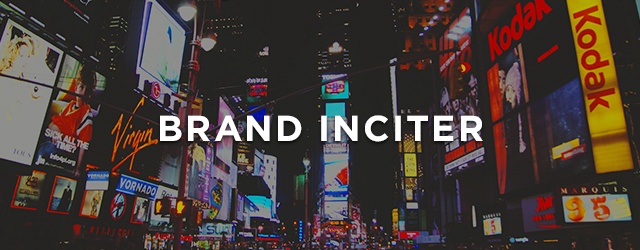Your customers need your brand more than you do
by December 7, 2015 12:28 pm 194 views

People arrive at our office for help with their brands. They’ve generally diagnosed their own problems: Too little known. Known for the wrong thing. Too few customers. Margins too low. Getting beaten by larger, stronger, richer competitors. Having a hard time breaking out. “Stuck.”
They’ve discerned their problem (or opportunity, to phrase it in a “glass half-full” way) is somehow rooted in the “brand” and that fixing their brand can fix their business problem. They understand they need a stronger brand because they need a stronger business.
I have a surprise for them – and maybe you.
Even though they need a stronger brand, their customers need it more. Your customers need your brand more than you do. How so? Let’s explore.
• Brands clear the fog.
It’s a well-worn rule-of-thumb that we consumers are exposed to some 3,000 to 5,000+ commercial messages per day. What with mobile ads, interstitial ads and product placements, that number only grows. (I’ve seen estimates as high as 10,000!)
All that noise makes it hard for customers to remember anything about a product, much less develop affinity. Brands turn the extraordinary amount of information into a mental shorthand that becomes a neat, tidy mnemonic for customers.
Consider: if you had to independently hold and process every information-bit, experience and impression you had received about Starbucks, you would have overload. In fact, your brain would be incapable not only of evaluating Starbucks, but would likely shut down for any other activity as well. So instead of trying to hold all that discrete information, you can sum it up neatly into a simple basket of facts, emotions, experiences called “Starbucks” and then you can add a neat emotion to it: “I like,” “I don’t like,” etc. That mental summary is the “brand” of Starbucks for you. Brands save mental real estate.
• Brands help customers decide.
When the transmission on Melissa’s Mercedes C-class blew up a few years ago, she knew immediately she wanted a similar car, but not a Mercedes. She knew Acura, Lexus and Hyundai were luxury nameplates she liked. This immediately narrowed her view. These three brand shorthands instantly cleared dozens of alternatives.
A little online research and she had prioritized her shopping list with consumer and expert reviews. A trip to the Acura lot (first choice, first destination) and she had selected her new TSX. Cadillac, Lincoln, Audi, Volvo didn’t have a chance. Not because they did not make great models in our price range, but because their brands did not reach a certain threshold for Melissa. She needed those three brands because she was not going to spend weeks shopping, researching, evaluating and analyzing options.
Your brand helps your customers decide.
• Brands are the emotional connection.
Decision science is fascinating. One of the most amazing data points is that too many choices can completely shut down decision-making. While it might be hard to choose among three relevant choices, it becomes impossible to choose from among five to six. Our “decide” faculty simply quits.
Another fascinating insight is that we humans make decisions and choices with our emotions, and subsequently use reason to justify the decision. You think you’re a logical creature, but you’re not. Observe your next significant decision process closely and tell me if it’s true.
Brands are the emotional relationship your customers make with your product, service or company. Without emotional connection, it’s hard – maybe impossible – to decide.
Stephen Covey, noted author of “The 7 Habits of Highly Successful People,” talked about the “emotional bank account.” He said every experience and interaction created a debit or credit in the emotional bank account – it was a reserve of goodwill and good-feeling that paid relationship dividends. For a company or nonprofit, that emotional bank account is your brand.
Your customers want and need an emotional connection to your company, product or service. Your customers need your brand to create emotional connective tissue for them.
Your customers need your brand more than you do.
